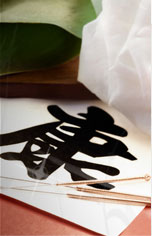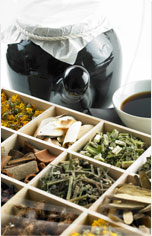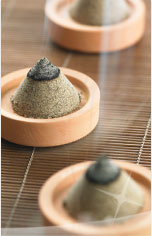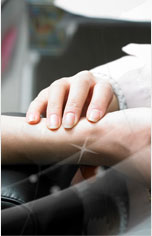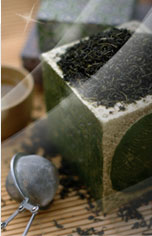
Acupuncture and Traditional Chinese Medicine (TCM) has a history of over 3,000 years in helping women before, during and after pregnancy. Many pregnant women already know to seek acupuncture and TCM for common pregnancy symptoms such as morning sickness, low back pain, breech baby, and delayed labor.
Pregnancy is not an illness, and most pregnant women do not need regular ongoing treatment under normal circumstances. However, acupuncture and TCM can be an excellent choice to address common pregnancy ailments and ensure optimal health for you and your baby in a safe, gentle, and relaxing way without the use of harmful medications.
Although acupuncture and TCM are generally considered safe during pregnancy,1 it’s important to choose a practitioner experienced in prenatal acupuncture because some acupuncture points and herbs should not be used during pregnancy, It’s also important to discuss any TCM treatments or herbal supplements with all of your prenatal health care providers.
|
Acupuncture During the First Trimester
In the first trimester (week 0 -13), Acupuncture and TCM treatments focus on alleviating early symptoms and decreasing the risk of miscarriage.
The beginning of a pregnancy can be an anxious and stressful time, especially when there is a history of miscarriage(s). Arguably the most important goal of TCM in the first trimester is maintaining the pregnancy by reducing the risk of miscarriage. In TCM, maintaining the pregnancy is referred as "securing and calming the fetus". Acupuncture and Chinese herbs are often used to strengthen the reproductive organs and nourish the fetus by increasing the flow of Qi (the vital energy of the body) and to the Uterus.
A clinic study in 2008 suggests that acupuncture can help prevent non-genetic related miscarriage by reducing cortisol and prolactin levels.2 Another study suggests that the known effects of acupuncture on stress are also a possible mechanism by which miscarriage rates could be reduced. According to the authors, it is possible that stress in very early pregnancy may cause overactivity of the hypothalamus-pituitary-ovarian axis, leading to reduced progesterone levels. In reducing this stress, progesterone levels may stay higher.3
Morning sickness, fatigue and headaches are fairly common in the first trimester. Some women also suffer from anxiety and spotting/bleeding (which can be perfectly normal). Both acupuncture and Chinese herbs can relieve these common symptoms associated with the early stage of pregnancy by regulating the flow of Qi and Blood throughout the body and restoring the balance of Zang Fu organs.
Acupuncture During the Second Trimester
For many women, the second trimester (week 14-27) is the most comfortable time of all three trimesters, as the worst of the nausea has usually passed while the fetus is not big enough to create too much discomforts.
As the chance of miscarriage significantly decreases after 12 weeks of pregnancy,4 acupuncture and TCM treatments focus on nourishing the fetus and offering relief for possible ailments during the second trimester. Acupuncture and Chinese herbs help provide nourishment to support the development of the fetus by increasing blood flow to the umbilical artery. A Doppler study shows that certain acupuncture points increased blood flow to the fetus. Acupuncture led to a change in the velocity of blood flow, improved microcirculation in utero and improved the tone of the blood vessel.5 They also alleviate some common pregnancy ailments such as heartburn, pelvic pain and edema by promoting Qi and Blood circulation.
Patients typically receive treatment once a month or as needed during the second trimester, although some patients may require more frequent treatments depending on their history of pregnancy and complications.
|
|
Benefits of Acupuncture
During Pregnancy
Prenatal Care
Postpartum Care
|
|
Acupuncture During the Third Trimester
In the third trimester (week 28 until giving birth), acupuncture and TCM treatments focus on preparing for labor and delivery while continue nourishing the fetus and providing relief for pregnancy related symptoms.
The third trimester of pregnancy can be physically and emotionally challenging. The baby grows in size rapidly in the third trimester, and his or her movements will become more obvious as well. The size, position and movement of the baby are often accompanied by increasing discomfort and other signs and symptoms, including sciatica, hip and back pain, shortness of breath and frequent urination. As mentioned above, acupuncture and Chinese herbs are safe and effective alternative treatment options for these common issues. Acupuncture and Chinese herbs help provide nourishment to the fetus and relief from pain and other ailments by promoting the circulation of Qi and Blood.
Acupuncture can also help with more serious issues, including breech position (baby is positioned head-up in the uterus). Specific acupuncture point can be used for turning breech babies. Treatment involves moxibustion, the burning of an herb called mugwort (moxa, Artemisia Argyi Folium) over a point on the fifth toe. Treatment is generally given between weeks 32 through 38, with week 34 - 36 being the optimal time. A clinical study in 2003 showed 76.4% breeches successfully corrected with acupuncture treatments. The study concluded that acupuncture is a relatively simple, effective and inexpensive method for breech birth presentation.6
Acupuncture also help women prepare for labor by preparing the cervix to soften and dilate and the uterine muscles to contract effectively when needed. Acupuncture helps relax and soften uterine ligaments and bring the blood flow to the pelvis. Specific acupuncture points with down bearing effect encourage the baby to descend into the birth canal. Weekly treatments are recommended from 36 weeks onward; if you are close to due or overdue, more frequent treatments will be recommended until labor begins.
Acupuncture for Postpartum Care
It’s important to recover properly after childbirth. Postpartum acupuncture can help you heal and recover, regain full strength and vitality, restore the balance in the reproductive hormones, and boost immunity. After birth, acupuncture and Chinese herbal medicine can help address any residual aches and pains from labor, fatigue, and postpartum depression or anxiety. If you find that your breast milk supply is weak or inconsistent, acupuncture can help with flow and nourishing herbs can help with supply.
NOTE: The names of organs are capitalized when referring to the entire, functional organ systems in TCM perspective: Liver, Blood, etc. The names of organs are lower-cased when referring to the distinct, biomedical organs: liver, blood, etc.
|

